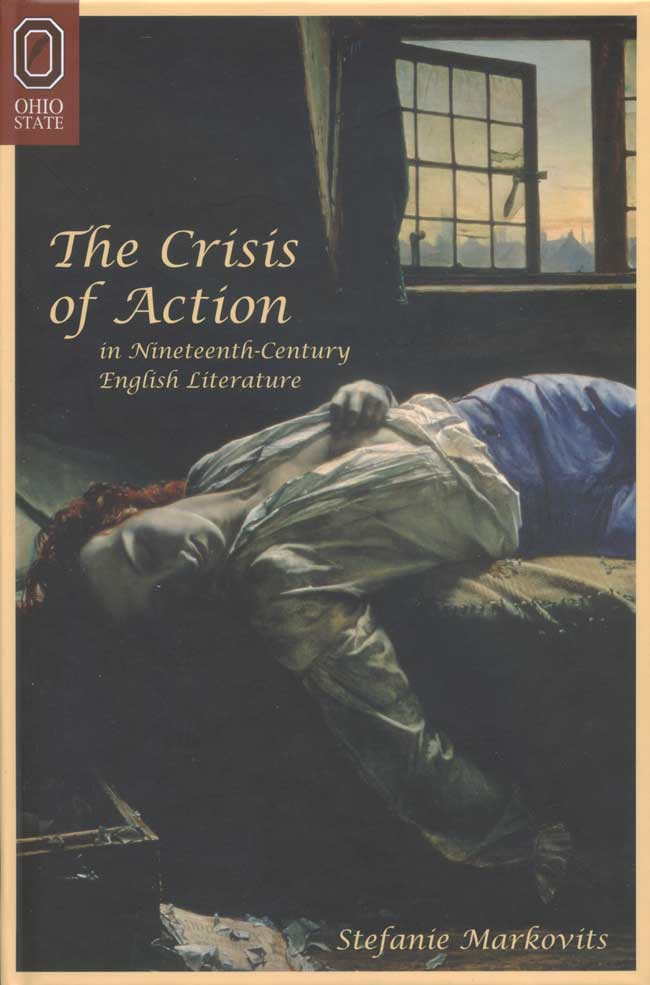|
Samuel and Ronnie Heyman Prize for Outstanding Scholarly Publication 2008 The Crisis of Action in Nineteenth-Century English LiteratureStefanie Markovits |
 12/27/2006 Literary Criticism/European/English 256 pp. 6x9  $76.95 cloth 978-0-8142-1040-6 Add cloth to shopping cart Shopping Cart Instructions Review/Change Shopping Cart & Check-out | |||
|
“Markovits’ intelligent engagement with generic cross-over is one of the best accounts of lyric form’s impact on narrative since Jay Clayton’s excellent book on Romantic poetry’s effect on Victorian fiction. The phenomenon of inaction in literary history deserves study, and certainly deserves Markovits’ sensitive readings and jargon-free exposition.” —Robert L. Caserio, author of Plot, Story, and the Novel: From Dickens and Poe to the Modern Period and The Novel in England, 1900–1950 “The Crisis of Action in Nineteenth-Century English Literature is a richly original study that is supported by a mature and easy command of a broad range of literature. The scholarship allows for a useful and convincing range of allusion, which Markovits employs to broaden our sense of the literature and the complications that the Victorian commitment to work and action inevitably entailed. I am much impressed by the maturity with which the scholarship is invoked.” —George Levine, author of Dying to Know: Scientific Epistemology and Narrative in Victorian England We think of the nineteenth century as an active age—the age of colonial expansion, revolutions, and railroads, of great exploration and the Great Exhibition. But in reading the works of Romantic and Victorian writers one notices a conflict, what Stefanie Markovits terms “a crisis of action.” In her book, The Crisis of Action in Nineteenth-Century English Literature, Markovits maps out this conflict by focusing on four writers: William Wordsworth, Arthur Hugh Clough, George Eliot, and Henry James. Each chapter offers a “case-study” that demonstrates how specific historical contingencies—including reaction to the French Revolution, laissez-faire economic practices, changes in religious and scientific beliefs, and shifts in women’s roles—made people in the period hypersensitive to the status of action and its literary co-relative, plot. By emphasizing the importance of inaction—both frustrated action and internalized action,—Markovits shows how the Victorian psychological novel develops out of Romantic poetry. But her concerns are ethical as well as generic. Aristotelian models of development see character as the product of actions. Yet in the writings considered, perceptions of characters come not from what they do, but from what they cannot do. This shift has moral consequences: must one do the right thing, or is it enough to will it? How does literary work relate to this question? Through an historically sensitive analysis, Markovits reinvests the idea of action with its Victorian weightiness. Stefanie Markovits is assistant professor of English at Yale University. | ||||

